Schools in sub-Saharan Africa have suffered from the same ills for many years and require a radical shift in approach.
Visiting classrooms in Tanzania sometimes feels like an exercise in redundancy. Almost every room looks exactly the same: lines of wooden desks facing forward; students piled on top of one another scribbling in notebooks; bells; tea; teachers writing on chalkboards; and students responding in chorus.
While politicians and nonprofit organizations throw around “education” as a key phrase, and entire conferences are held on the need for expanding access and quality, the truth of education comes down to individual classrooms. In Tanzania, as in almost all sub-Saharan countries, every classroom symbolizes a flawed system: a one-size-fits-all, school-in-a-box, results-based system. Clearly, this system cannot and will not produce the literate, creative, problem-solving employees and entrepreneurs so necessary for success in the global economy.
A Global Conversation
It would be unfair to limit the issue to sub-Saharan Africa, in general, or Tanzania, in particular. The global conversation on education currently revolves around test preparation, standardization and use of corporate models in schools.
Despite Finland’s surprising upset in the Programme for International Student Assessment (PISA) — and the clear evidence showing Finnish success as a factor of highly-trained teachers, small schools and economic equity — the accepted test preparation orthodoxy still guides much education reform globally. Pasi Sahlberg, in his writing on Finland’s system, calls this school of thought the Global Education Reform Movement (GERM).
Ironically, in Britain and the United States, where school systems still fail marginalized youth or those from low socioeconomic backgrounds, this method of reform has been critiqued because it suppresses creativity and, even more dramatically, creates a “death valley of education.” Certainly, the skills a successful entrepreneur or intrapreneur possesses require flexibility, creativity and critical thinking skills, and cannot be fostered in a system that only focuses on obedience and one avenue to success.
The Sub-Saharan Story
Sub-Saharan African education swung with the pendulum of global education, and continues to do so with its attempt to adopt the outcome-based GERM principles. In the mid-1990s onward, countries such as Namibia and South Africa adopted seemingly egalitarian learner-centered methodologies and competency-based curricula.
Loosely based on Jean Piaget’s idea of scaffolding for learners and Lev Vgotsky’s Zone of Proximal Development, learner-centered curricula focuses on the constructivist idea that knowledge is created and employs many different teaching techniques to reach students at their starting level and build knowledge. Competency-based curricula, as an extension, mark students based on how well they master tasks rather than how much they can memorize. Ideally, sub-Saharan African countries would implement learner-based education that would result in outcome-based results; logically, better education would lead to better results.
Unfortunately, despite the democratic feel of learner-based curricula and its embrasure by sub-Saharan Africa, the programs largely failed. In Namibia, where the Danish-guided life sciences curriculum implemented in 1991 served as an initial model of learner-centered pedagogy, the failure resulted from a lack of understanding and difficulties bridging the gap between classroom realities and lofty educational ideas. In South Africa, similar issues with understanding and implementation resulted in the failure of new educational policies.
The issues with learner-centered education stemmed almost entirely from the lack of attention to local contexts and cultures, as well as the educational reform needed. What policymakers and nonprofits forgot was the crucial need to educate the people conducting the change because they, too, were products of a system that still promoted rote learning and colonial mimicry.
In 1960, Cuba’s well-documented adult literacy drive pushed against existing mindsets, and presented a very real shift in paradigms rather than simply paying lip service to the same. Incidentally, Cuba now boasts 100% literacy rate and 100% school enrolment. A truly democratic and radical departure from traditional schooling has yet to occur in sub-Saharan Africa.
Current global education policy, and that in sub-Saharan Africa, largely reflects trends toward testing and accountability. For example, Tanzania’s “Big Results Now” project attempts to solve the issue of low school quality, overcrowding and lack of teacher initiative by “strengthening accountability, introducing the right incentives, and conducting meaningful assessments within the primary and secondary education systems.” This reads almost as a verbatim reproduction of — largely unsuccessful — policies in Britain and the US, just as the learner-based methodologies of the 1990s reflected progressive educational reforms in those in the 1980s.
China’s investments and the youth bulge in sub-Saharan Africa have drawn attention to the continent again. In order to create successful educational systems that foster entrepreneurial and soft skills, sub-Saharan African schools will need to engage in a complex and complete departure from traditional models.
One cannot help but think of policymakers, nongovernmental organizations (NGO) and politicians circled around a Jack in the Box, winding it up and jumping in surprise when the same clown pops out every time. One might also smirk at the oddity of recycling unsuccessful reforms from one country to another and expecting new outcomes. Perhaps a bit of the humor disappears, however, when one realizes that actual children and families fighting to better their circumstances rely on these schools and ideologies.
Solutions for Healthier Economies
Recently, China’s investments and the youth bulge in sub-Saharan Africa have drawn attention to the continent again. In order to create successful educational systems that foster entrepreneurial and soft skills, sub-Saharan African schools will need to engage in a complex and complete departure from traditional models.
Certainly, everyone — including teachers, business owners, government officials and nonprofit/NGO policymakers — is responsible for improving school quality. Unfortunately, much time seems to be spent hiring consultants, bringing in nonprofit or NGO workers, engaging in data collecting and evaluation, and writing detailed, analytical plans for improvement. Perhaps, as a first step toward changing and improving classrooms, more time could be spent watching teachers in classrooms and working on teacher education programs.
Encouraging — or forcing, as the case may be — local education officials to engage with their schools and communities would be a solid start. If accountability is established for teachers, then certainly it should also be established for the individuals responsible for teacher support. Rooting out endemic corruption and individuals in comfortable government jobs with very little productivity are clear first steps.
The evidence from successful countries such as Finland and Cuba — and even the systems in the US — show that, indisputably, teacher education is the foundation of a successful system. Well-paid, well-educated teachers with job security and sympathetic, democratic leadership perform better across the board in any country and with any population of students. Yet in sub-Saharan Africa, teachers are often underpaid and work with massive student populations with very little training. The logical step would be to provide as firm a foundation as possible for teachers with continual opportunities for further learning.
Furthermore, pendulum-swinging educational theories tossed down from the wastebasket of developed countries need to be critically addressed. At its most nefarious, the current method of developing educational structures seems to smack of neocolonialism. At its best, it is simply inadequate and paternalistic. Despite the desire of development organizations and donors for quick fixes, the obvious need is for gradual, grassroots reform led by local people.
Deeper thinking and investment by local stakeholders are absolutely required, along with suggestions — rather than dictation — by donors and development organizations. Without this, schools in sub-Saharan Africa will continue to sing the same silly song and pop out the same silly clown every time.
While a combination of different educational theories would probably work best for any country, this requires — once again — well-educated, competent teachers and administration teams who can implement while accommodating for local cultures. Asking countries to reform schools without understanding local contexts, and without providing pre-education to explain the methodologies thoroughly, is akin to expecting an English-speaker to learn Swahili instantaneously.
In addition, the rigid mindset promulgated in much of sub-Saharan Africa during colonialism still lingers in classrooms, and prevents the development of free spaces for students to think creatively, innovate and problem-solve. Teachers in Tanzania, for example, often mention to this author they are concerned that, if students talk too much, the teacher will lose their authority. Canes are still used as a disciplinary strategy, intimidating students to the point where even if the teacher allows questions, students refuse to speak. Another solid step toward reform would be introducing, within the developed teacher education systems, simple classroom strategies and inquiry methods to allow increased student autonomy and better disciplinary structures.
A good teacher knows that control is shared in a flexible, discursive classroom; indeed, these practices are reflected in some of the loftiest international curricula, including the International Baccalaureate, AP programs and the A-Level system in England. It would behoove policymakers and international development organizations to also allow shared decision-making with their schools, teachers and administrators to set an example countermanding the patriarchal and post-colonial systems.
Finally, in addition to governments and nonprofits/NGOs creating solid opportunities for teacher and administration education, work needs to be done in collaboration with businesses. While education is often perceived as an ideal — a symbol of a cultured individual — in reality, it provides a passport to economic advancement for most people. Expecting each child to perform on the same test ignores the diversity of talents, and the fact that some children are simply not good at tests.
While few want to dirty their hands with talk of vocational and technical education, it is a necessary conversation. Governments would do well to examine Germany’s successful vocational system. Even without vocational education, it is logical to encourage dialogue between businesses and schools in a flexible, skilled labor market. When schools understand what kinds of employees businesses want, the system can be better reformed to provide internships, a more relevant curriculum and training for future jobs.
This would also remove the complete focus on testing; thus allowing “failing” students who have other skills to flourish in their chosen vocation and contribute to the economy.
The Same Silly Clown
A confusing array of recycled methodologies and reforms have hindered sub-Saharan Africa’s education from success. A need for concentrated, grassroots reforms that educate teachers, administrators and local educational officials is evident. Education is often used as a panacea for all ills a country faces but, truthfully, a good school system can actually improve life for everyone.
Unfortunately, facilitating the creation of this kind of system necessitates not only a departure from norms, but also solutions beyond simple importation and test-oriented goals. Deeper thinking and investment by local stakeholders are absolutely required, along with suggestions — rather than dictation — by donors and development organizations. Without this, schools in sub-Saharan Africa will continue to sing the same silly song and pop out the same silly clown every time.
*[Continue the conversation in a Webinar and concurrent Twitter chat convened by Ashoka’s Future Forward initiative, in partnership with the MasterCard Foundation. The initiative finds, supports and accelerates innovative solutions for youth employment in Africa, and will be holding a live panel conversation and concurrent Twitter chat on October 9 at 12:30pm (ET) using the hashtags #AfricaYouthFwd and #SocEntChat.]
The views expressed in this article are the author’s own and do not necessarily reflect Fair Observer’s editorial policy.
Support Fair Observer
We rely on your support for our independence, diversity and quality.
For more than 10 years, Fair Observer has been free, fair and independent. No billionaire owns us, no advertisers control us. We are a reader-supported nonprofit. Unlike many other publications, we keep our content free for readers regardless of where they live or whether they can afford to pay. We have no paywalls and no ads.
In the post-truth era of fake news, echo chambers and filter bubbles, we publish a plurality of perspectives from around the world. Anyone can publish with us, but everyone goes through a rigorous editorial process. So, you get fact-checked, well-reasoned content instead of noise.
We publish 2,500+ voices from 90+ countries. We also conduct education and training programs
on subjects ranging from digital media and journalism to writing and critical thinking. This
doesn’t come cheap. Servers, editors, trainers and web developers cost
money.
Please consider supporting us on a regular basis as a recurring donor or a
sustaining member.
Will you support FO’s journalism?
We rely on your support for our independence, diversity and quality.



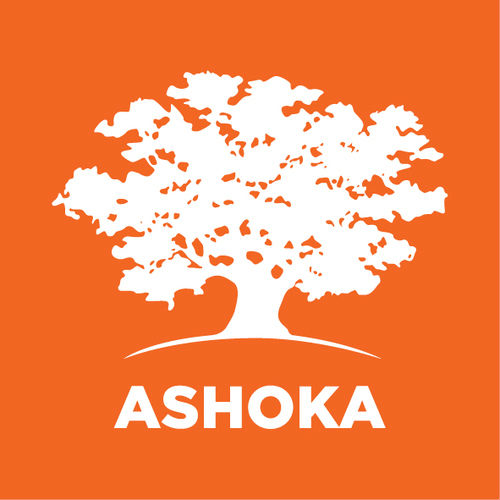

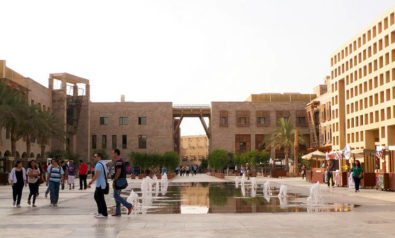


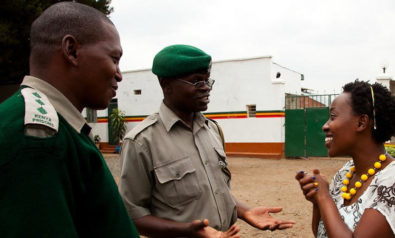




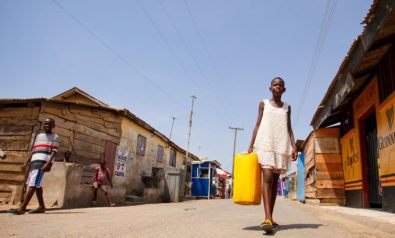

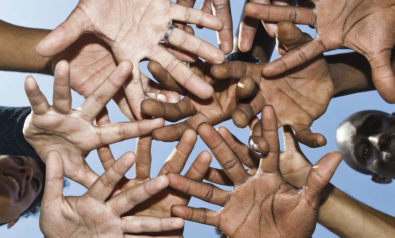
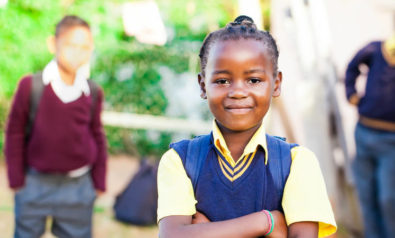




Comment